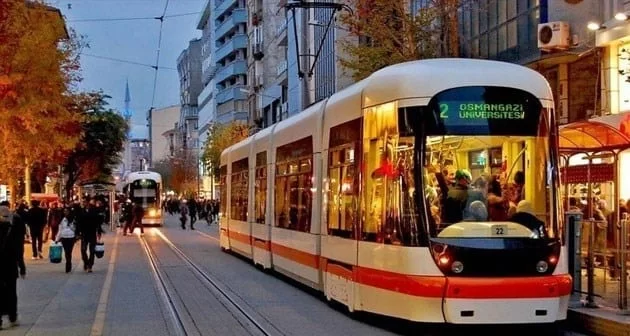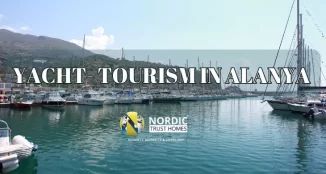PUBLIC TRANSPORTATION IN TURKEY
GENERAL
Public Transportation in Turkey, is carried out by the state & private sector’s such as.. Highway, Railway, Airway & Seaway. Transportation is organized as passenger & freight transportation. However, both serve the same purpose.
Due to the geographical conditions of Turkey, road transportation covers large areas.
A large part of Turkey's surface area consists of mountainous lands. The general structure of the mountains is a chain of mountains stretching from East to West. For this reason, rail transport serves mostly in East - West directions.
Turkey's highways connects 81 cities with each other by modern highways. In addition, there are a total of 922 districts & 18288 villages in Turkey. All districts & villages are connected by road & public transportation vehicles. These transportations are provided by buses, & in some places by train. In inter-city transportation, the sea route is also available between Istanbul, Izmir, Antalya, Samsun, Trabzon, Mersin & Mugla, based in Istanbul.
There are also urban public transportation vehicles in cities & towns. Urban public transportation vehicles generally fall under the control of the municipalities. Municipalities transfer some of these services to companies. Rail transport is becoming widespread in the city. In bigger cities, there are metro lines that move underground & above. In urban transportation, buses & mini-bus transportation are most common. Sea routes is used well in urban transportation in provinces of Istanbul, Izmir & Canakkale.
There are 56 airports in total in Turkey. 35 of these airports are international airports. However, the biggest airports are Istanbul Airport, Istanbul Sabiha Gokcen Airport, Izmir, Ankara, Antalya, Adana areas. In recent years air travel has become the preferred method in Turkey.
INTERCITY BUS TOURISM COMPANIES
Passengers are transported only by private companies through intercity bus companies in Turkey. These companies have established large organizations. Many of them have regular flights between more than two cities multiple times per day. Tickets are available on the internet & mobile phone apps. In addition, bus companies have ticket sales offices at bus terminals within the cities.
Names of important companies
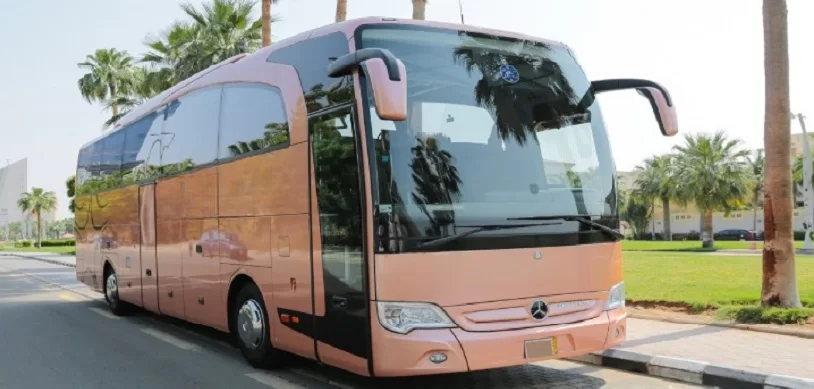
Metro Tourism.
Kamil Koc.
Pamukkale Tourism.
Varan Tourism.
Ulusoy Tourism.
Nilufer Tourism.
CITY TAXI TRANSPORTATION
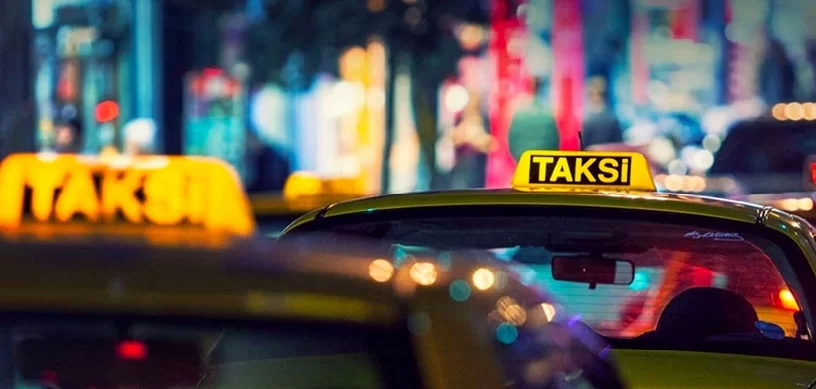
Taxi transportation in Turkey is done by traditional methods. There are taxi stands in certain parts of the city and taxi call bells in certain places depending on these stops. They also come to the address and offer service when called. There is NO UBER SYSTEM IN TURKEY.
TRANSPORTATION BY TRAM
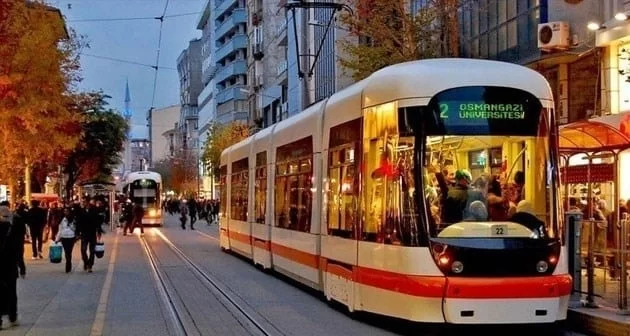
Tram transport is carried out by municipalities. Tickets for trams are sold in the city and at tram stops. In order to enter the tram stops, it is necessary to pass through the turnstiles with these tickets.
LOAD TRANSPORT

Goods & animal transportation in Turkey are carried out only by professional companies with a certificate of authority. However, the transportation of the purchased goods can be carried out by the purchased company directly by the vehicles & personnel with sufficient equipment. Most of the freight transport is done by road. Freight transportation by sea & air is not popular but possible.
TRAFFIC ACCIDENTS
In recent years, traffic accidents have decreased significantly in Turkey. This is due to the improvement of roads & inspections. In 2022, there were 37830 traffic accidents throughout Turkey, 118 of these accidents resulted in death, and a total of 148 people lost their lives. Most of the accidents are caused by speeding & not obeying the traffic rules.
SCOOTER
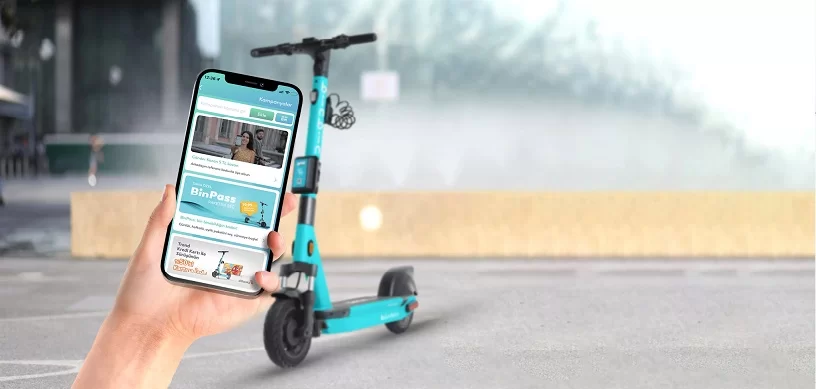
In some places, to facilitate urban transportation, scooter transportation, which is paid for via phone apps is now becoming widespread. However, this use is still preferred for travel rather than transportation.
CITY TRAFFIC
Private vehicles are used extensively in the cities of Turkey, & public transportation is not fully utilized. For this reason, urban traffic becomes a problem in big cities, especially on the main roads.
NUMBERS OF VEHICLES

Personal or company vehicles White background, black numbers.
Temporary license plates of new vehicles have Yellow background, black number.
Diplomatic plates, White background, green number.
Vehicles belonging to the security forces, blue background, white number.
Senior government executives Red background, gold color number.
Official institution managers white background, red number.
DRIVER'S LICENSES IN TURKEY
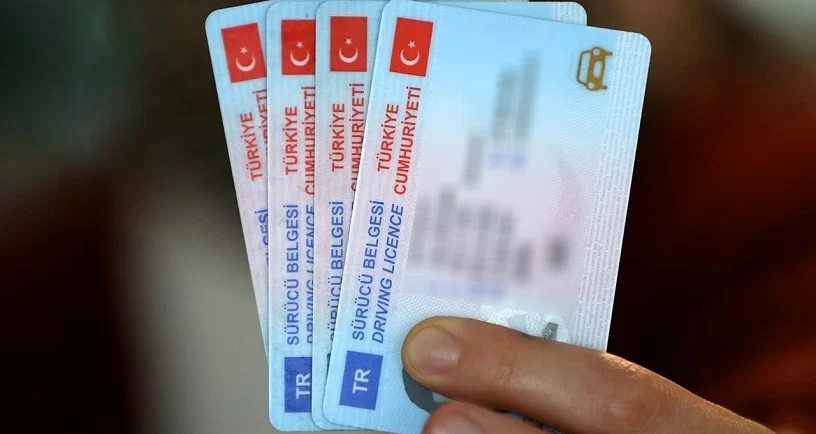
There are 17 types of driver's licenses in Turkey. A, C1, C, D1, D, BE, CE, C1E, DE, D1E, M, B1, B, A1, A2, F and G
Turkish driver's licenses are valid in 84 countries, including Germany, France and Russia.
With driver's licenses obtained from foreign countries, vehicles can be used for a maximum of six months from the date of entry into Turkey. At the end of six months, it is obligatory to replace the driver's licenses obtained from foreign countries with a Turkish driver's license in order to be able to drive in Turkey.
If foreign nationals want to obtain a Class B driver's license in Turkey by showing the class B car driver's license they use in their own country, they will be able to do this by going to the Directorate of Migration Management and bringing the necessary documents to the institution.
Required documents;
* Turkish translation of the driver's license obtained from a notary public or consulate,
* Identity
* Driver medical report
* Document stating blood group
* Biometric photo
* Criminal record certificate
* A receipt showing that you have paid the driver's license, valuable paper, tuition fee and foundation share fee

